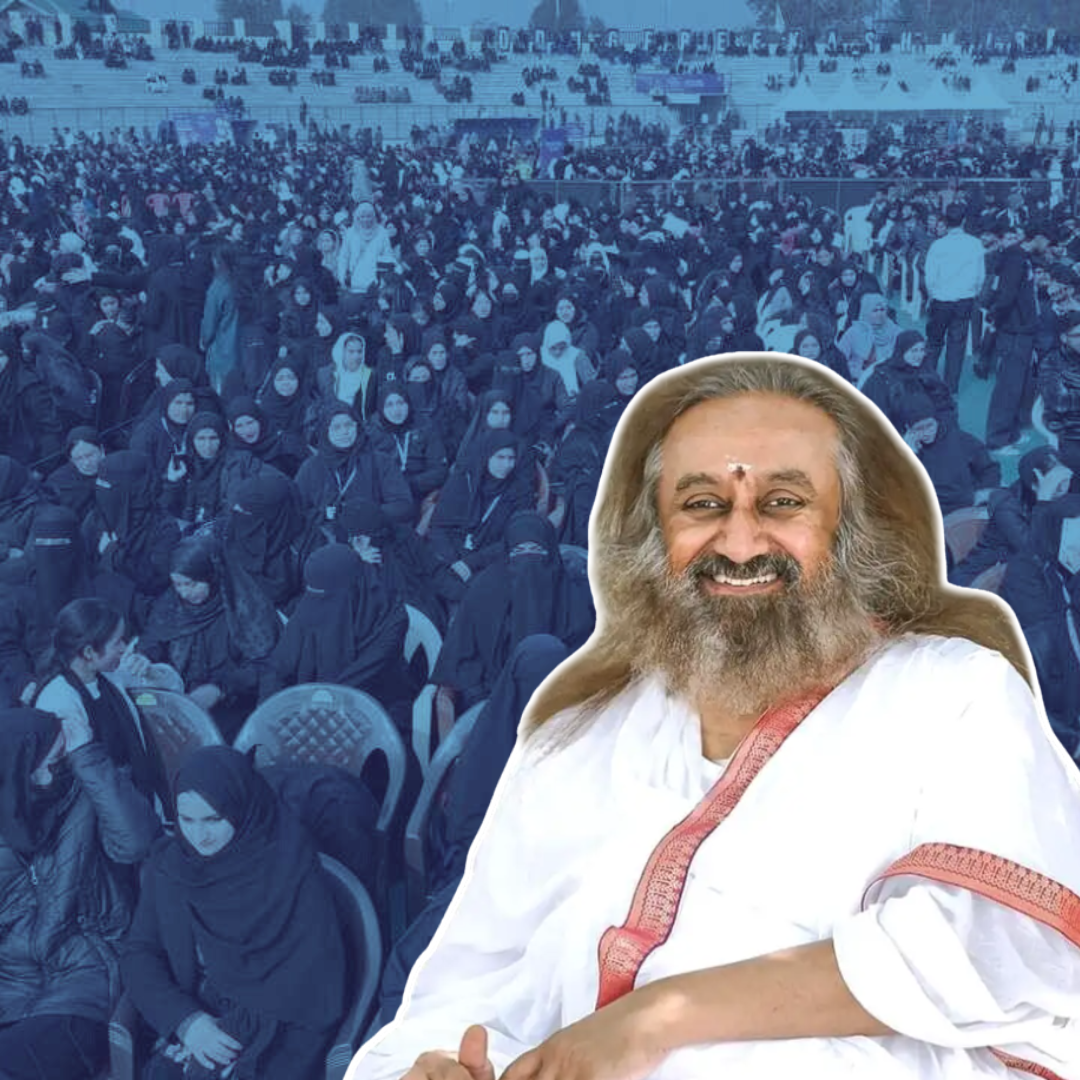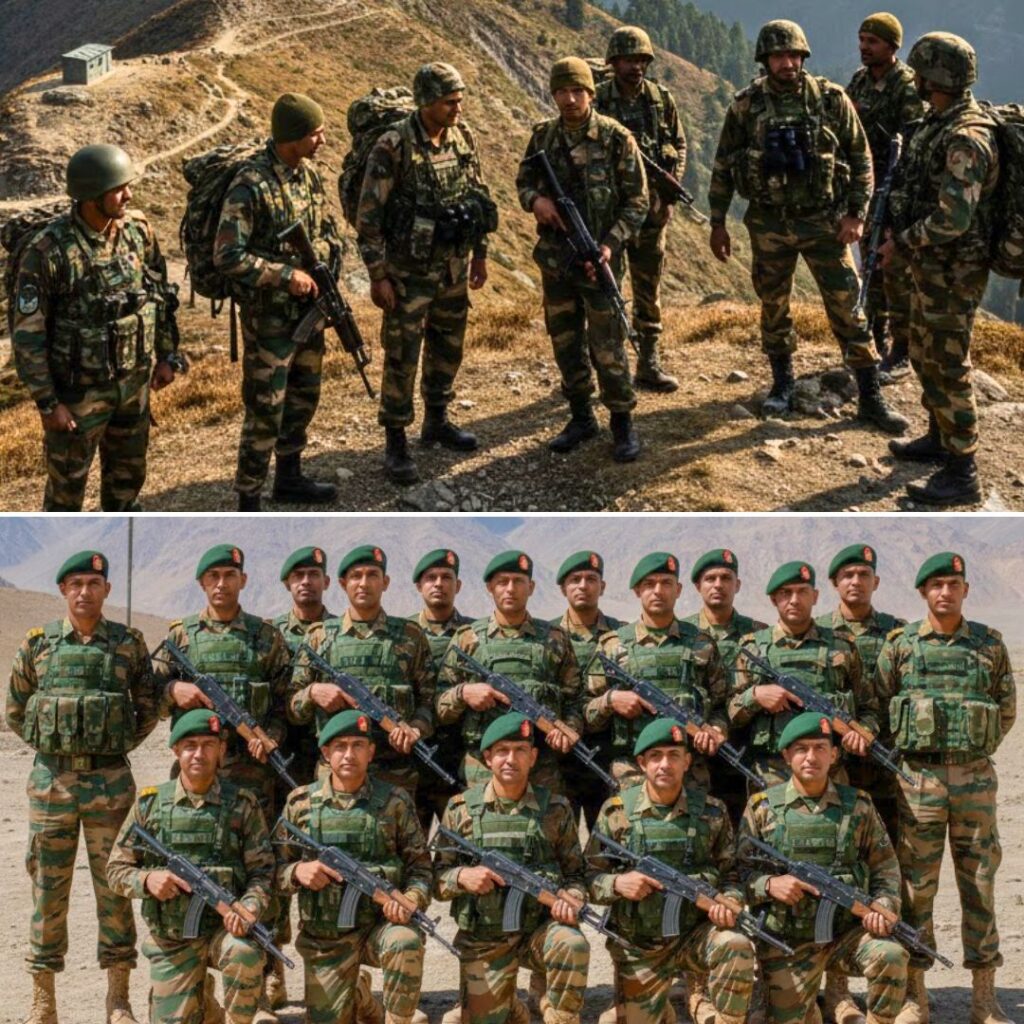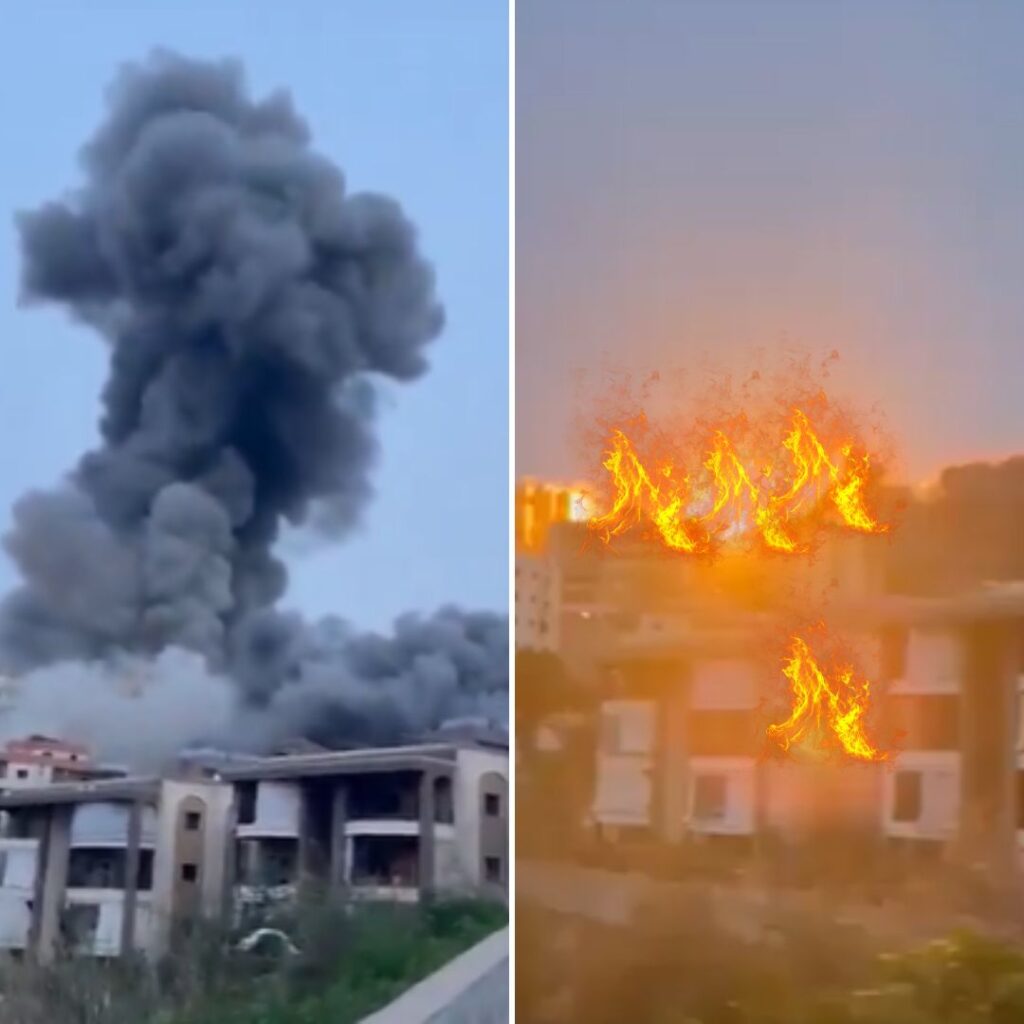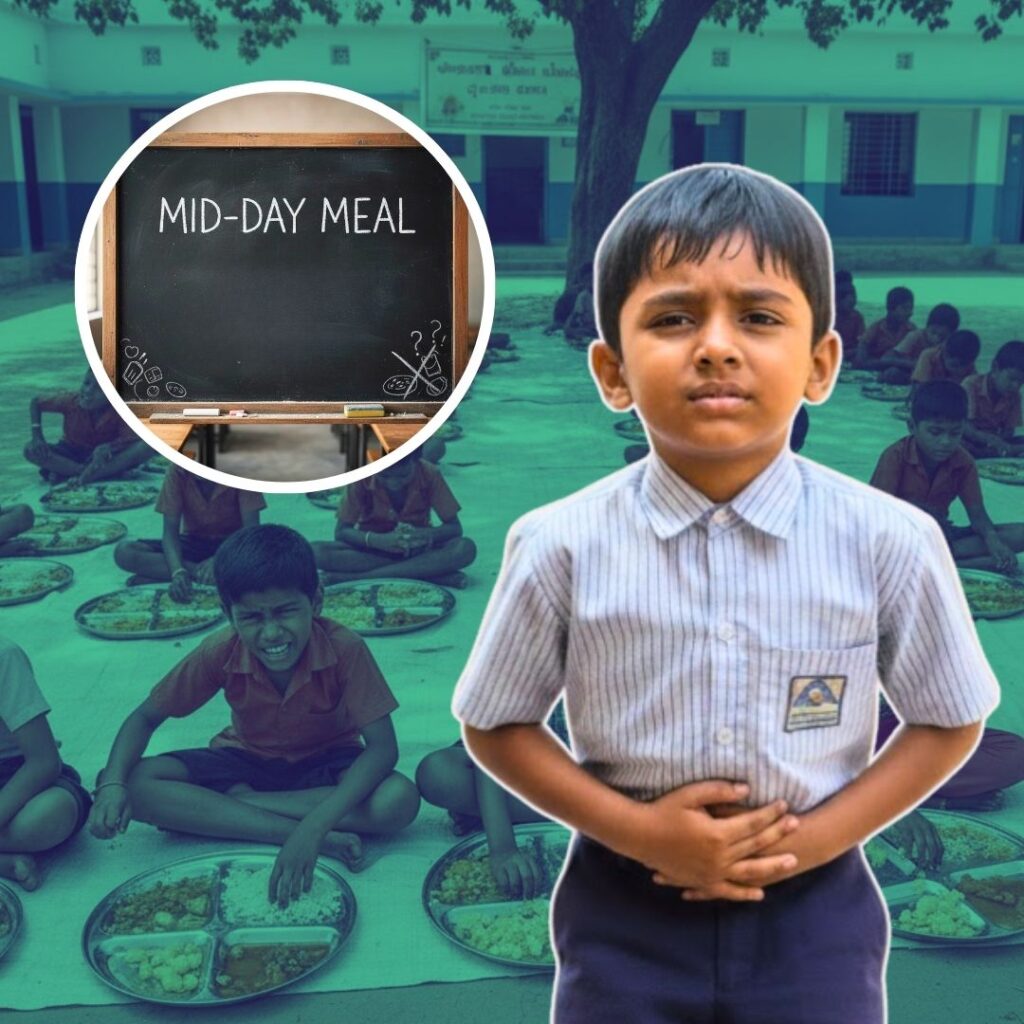In a landmark gathering at Bakshi Stadium, Srinagar, more than 20,000 students from 50 colleges and four universities united under the banner of hope and transformation, pledging to build a drug-free Kashmir alongside global humanitarian and spiritual leader Gurudev Sri Sri Ravi Shankar. Organized by the Department of Higher Education, Government of Jammu & Kashmir, the EduYouth Meet marked Gurudev’s first visit to the Valley in seven years.
His message of peace, communal harmony, and empowerment resonated strongly with young participants and education leaders. Senior officials, including Mr Shantmanu, IAS, Additional Chief Secretary of the J&K Government, extended a warm welcome, affirming the administration’s commitment to addressing substance abuse among the region’s youth. Gurudev’s visit also included deliberations with Vice Chancellors, educationists, and civic leaders, concluding with an audience with the Lieutenant Governor, Shri Manoj Sinha.
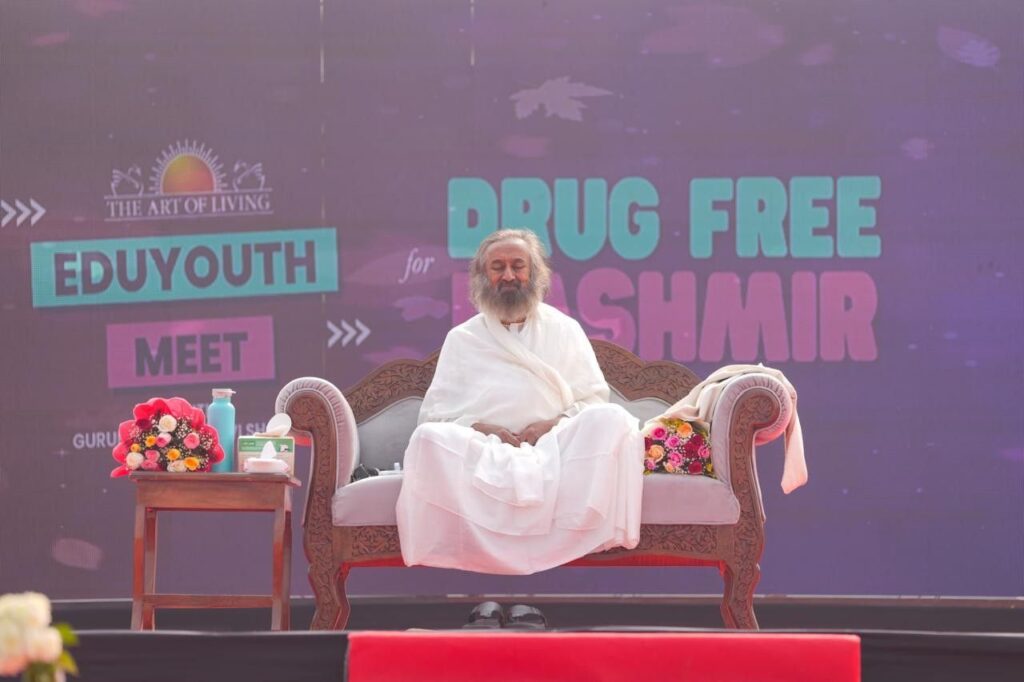
Meditation Revives Strength
Against the majestic backdrop of the Valley and amid an atmosphere charged with enthusiasm, Gurudev shared a simple yet profound message with students: that a drug-free life, free from addiction, confusion, and sorrow, lies within one’s own breath. “Kashmir will be free from drugs. My dream is of a society free from violence, a body free from disease, and a mind free from confusion,” he proclaimed to a rousing response.
Drawing connections between ancient wisdom and modern science, he reminded young Kashmiris that meditation is deeply rooted in the region’s heritage. “This land gave meditation to the world,” he said, “and it has nothing to do with religion—it’s a way to keep the intellect sharp and the mind happy.” His words echoed beyond the stadium, symbolizing a new cultural awakening among Kashmir’s youth. Mr Shantmanu praised the Art of Living’s sustained outreach, highlighting that its programs are equipping students with essential tools to manage stress and build resilience. “Our young minds are the future of Kashmir. Every effort that steers them away from drugs toward hope and purpose deserves full encouragement,” he said.
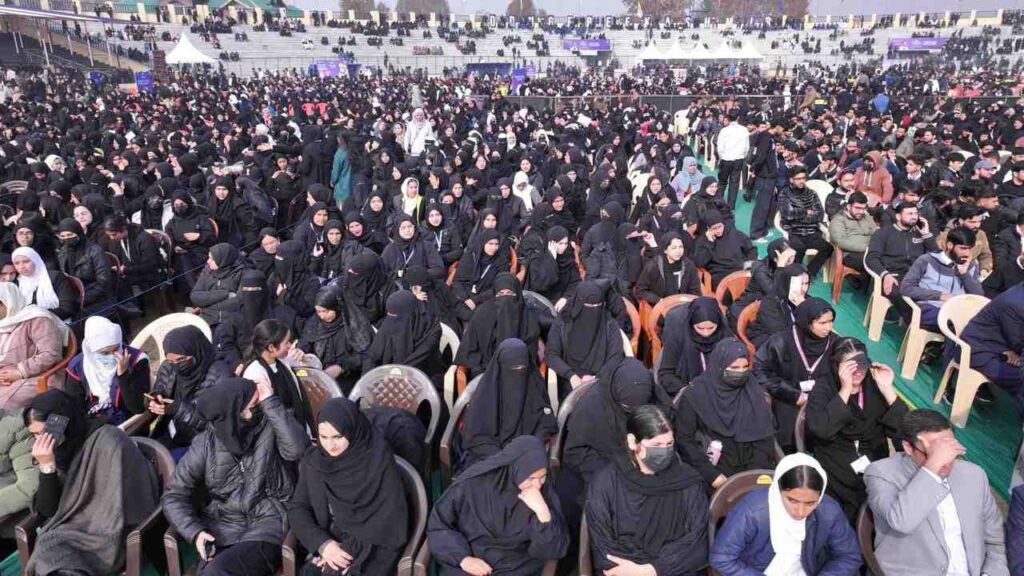
Healing Minds and Shaping Futures
The EduYouth Meet followed months of grassroots engagement by The Art of Living across Kashmir’s campuses, where thousands of students learned practical tools for emotional regulation through breathing techniques such as Sudarshan Kriya. These workshops have played a critical role in providing youth with structured ways to cope with academic and personal pressures while fostering bonding across communities and promoting a drug-free lifestyle.
During the same day, Gurudev interacted with seven vice chancellors from leading universities, 30 college principals, and prominent citizens to deliberate on social and educational reforms that can shape a resilient generation. As part of his visit, Gurudev is scheduled to meet inmates at Srinagar Central Jail on 12 November to extend the benefits of Art of Living’s Prison Program—a reformative initiative known to reduce aggression, instil emotional balance, and promote rehabilitation. The Lieutenant Governor, Shri Manoj Sinha, lauded these initiatives, reaffirming the administration’s resolve to strengthen mental wellness and inclusive development within the region.
The Logical Indian’s Perspective
The sight of more than 20,000 Kashmiri youth standing together for a drug-free future signals a heartfelt turn towards healing and unity. In a region that has borne decades of unrest and uncertainty, Gurudev Sri Sri Ravi Shankar’s message serves as a timely reminder of Kashmir’s inherent strength—its compassion, resilience, and spiritual heritage. The Logical Indian believes empowerment begins when communities reclaim agency over their minds and choices.
Encouraging holistic education and mental well-being initiatives can help Kashmir’s young generation rise above adversity and rediscover joy in peace and coexistence. As we collectively envision a future free of addiction and division, we ask our readers: What steps do you believe schools, communities, and citizens can take to ensure that Kashmir’s youth continue to thrive in compassion, strength, and togetherness?


